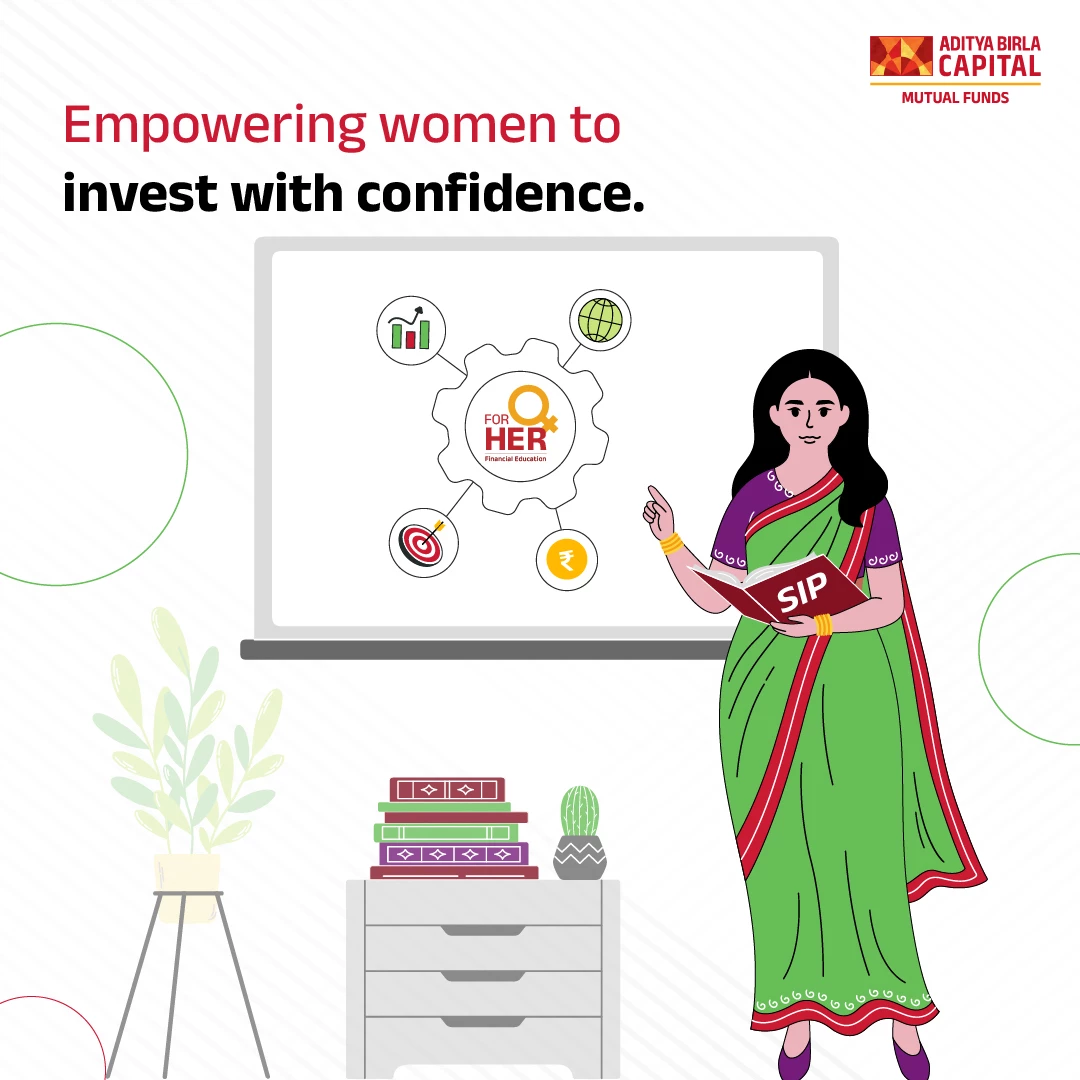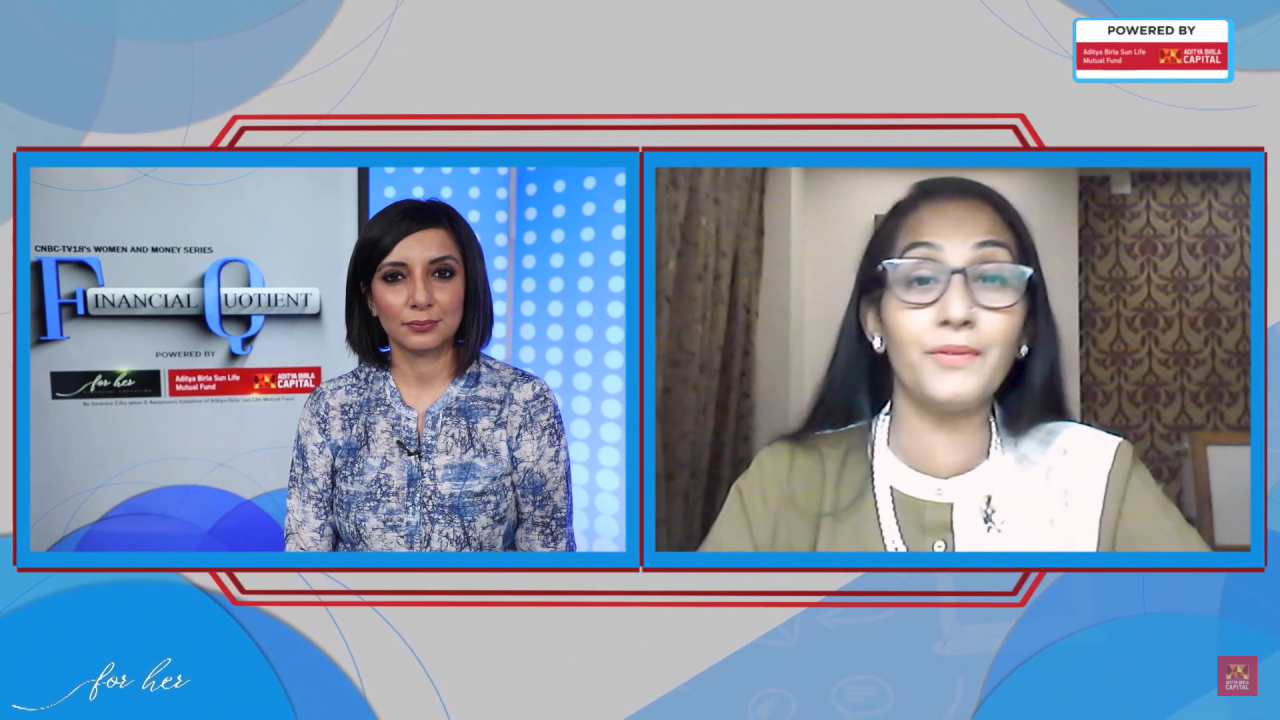Financial Literacy: How can it change your life?
In India, we believe in the power of education. We know that knowledge is the stepping stone to success. Our journey of knowledge starts at 3 learning our abc's. This first step lays the foundation to form words, create sentences, read and ultimately, graduate school and have a successful career.
The journey to financial literacy is equally important.
By learning and understanding basic financial concepts such as budgeting, saving, investing, etc. we can aim to eliminate uncertainty and lay the foundation to make financial decisions with confidence.
Let's kick start your financial literacy journey by understanding some basic concepts:
Save
Adopt a Save First, Spend Later Attitude
One of the easiest and most effective routes to improving your financial situation is by adopting a Save First, Spend Later Attitude.
Let's assume your salary comes into your account on the 30th of every month. When you receive your salary, you need to:
●First, save and invest for your future goals. (Try to transfer your savings into another account to prevent you from accidentally spending it.)
●Second, pay for essentials (needs) - groceries, electricity, gas, phone, etc.
●Third, use any leftover money for indulgence (wants) - restaurants, cafe coffee, spa, etc.
Adopting this attitude can help you to improve your financial situation.
Plan
Understand your financial situation to kick start the Financial Planning process
Before you start learning new routes to grow your wealth and, you need to analyze your current financial situation.
Pull out your bank statements, salary slips, loan documents and investment papers. Organize them to determine how much of your income is spent every month, where you spend your money, how much is saved and how much is invested.
This should help you determine your financial situation, verify if you're on-track to achieve your goals and highlight problematic areas.
Inflation & your Savings
Inflation is defined as 'the general increase in prices and fall of purchasing value of money'.
(Ref: Oxford Languages)
All of us are aware that prices of goods and services rise over time. Typically, the rise in prices is gradual and may not affect our day-to-day lifestyle. What most of us do not realise is that this gradual rise has a dramatic effect on the value of our savings and our future life.
For example, let's assume you pay ₹5000/month for groceries this year. Assuming a yearly 5% inflation rate,next year the same amount of groceries will cost ₹5250.In 5 years, it will cost ₹6381, in 10 years, it will cost ₹8144 and in 20 years, it will cost ₹13266.
As you see, over time, you will have to pay more for the same amount of groceries. This means for your future lifestyle, financially, you have to make inflation part of your plan
Debt
Examine/ Plan for your future by reducing Debt
Analyzing your finances gives you an at-a-glance view of your accumulated debt (home loan, student loans, credit card bills, etc.) and their respective interest rates.
Leverage this knowledge to ensure your debts are paid-off on time, prevent payment penalties and develop a plan to pay-off high interest, no benefit (tax benefit) debts faster.
Budget
Budget to chart out your path to wealth
Now that you have a clear picture of your financial situation and a few financial concepts, it is time to sit down and create a monthly budget.
●List down all your income, post-taxes, from all sources - salary, freelance work, rent from second home, investment dividends, etc.
●List down all monthly expenses - EMIs, electricity bills, gas bills, grocery bills, phone bills, entertainment bills, dinner bills, clothing bills, etc.
●List down all your short-term, medium-term and long-term goals.
●List down any savings and/or investments you have made to achieve your goals
Utilize this information to determine if your income is more than your expenditure, what excesses you can trim and what measures you can take to get on-track. Leverage this knowledge to allocate your income effectively and plan to achieve your goals in a timely manner.
Invest
Aim to start building wealth by
Saving money every month is a good habit but savings alone may not be enough. Inflation undermines the value of your money. To provide a good life for your family, plan to achieve your goals and aim to retire comfortably, you need instruments that has the potential to beat the inflation rate.
If you are thinking about investing to build wealth, keep the following in mind:
1.Start Small, Start Now, Be Disciplined
Don't wait for the perfect day, right time or a significant time to get started. Start your investment journey with as little as ₹500/month.
When you invest just ₹500 every month for a year, you will have invested ₹6000 for the year.
By investing regularly, your small amount can grow over a period of time.
2.Start Early, Stay Invested to Compound your Money
The longer you stay invested, the potential returns.
Let's assume: (For illustration purpose only) that you start investing ₹1000/month at 25 and you continue to invest for the next 30 years. Assuming you earn 10% interest on your investment
Your fund is probably worth ₹20,79,748. But, if you delayed investing by 10 years, assuming the same 10% interest, your fund is probably worth ₹7,24,083.
As you can see, a small delay caused a big difference. So, start early and stay invested.
3.Invest with a purpose
Align your goals and investments. This strategy has dual benefits. The first, it will help you stay committed to investing and the second, it should help you achieve your goal in time.
For example, let's assume you want to buy a laptop in 1 year and go on an international vacation in 5 years.
Protect your savings and investment from Emergencies
Plan for unexpected situations - job loss, natural disasters, medical emergencies, car accidents, home repairs, etc. Any of these situations can deplete your savings and force you to max out your credit cards or take a personal loan.
An emergency fund typically has 6 to 9 months' salary. It is separate from your savings account or investments. It can help you survive the energy without draining your resources and detailing your goals.
Now that you know how financial literacy can help you –
Reduce debt, build wealth, achieve goals and more - continue learning the abc's of finance.
An Investor education and Awareness initiative of Aditya Birla Sun Life Mutual Fund
All investors have to go through a one-time KYC (Know Your Customer) process. Investors to invest only with SEBI registered Mutual Funds. For further information on KYC, list of SEBI registered Mutual Funds and redressal of complaints including details about SEBI SCORES portal, visit link : https://mutualfund.adityabirlacapital.com/Investor-Education/education/kyc-and-redressal for further details
Mutual Fund investments are subject to market risks, read all scheme related documents carefully
*Inflation disclaimers &Interest rate disclaimers (The calculations are for illustration purpose only. Past performance may or may not be sustained in future. ABSLAMC /the Fund is not guaranteeing/offering/communicating any indicative yield/returns on investments. This calculation is based on assumed rate of returns and it is meant for illustration purposes only. The calculations are not based on any judgments of the future return of the debt and equity markets / sectors or of any individual security and should not be construed as promise on minimum returns and/or safeguard of capital. This calculation alone is not sufficient and shouldn’t be used for the development or implementation of an investment strategy. Past performance may or may not be sustained in the future)
*Performance Disclaimers ( The Financial Solution(s) stated above is ONLY for highlighting the many advantages perceived from investments in Mutual Funds but does not in any manner, indicate or imply, either the quality of any particular Scheme or guarantee any specific performance/returns)





 1800-270-7000
1800-270-7000






















